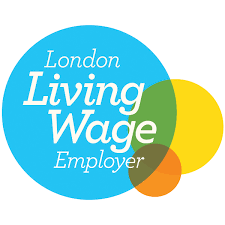
This week is Mental Health Awareness Week. This is an annual event, organised by the Mental Health Foundation, which has taken place since 2001.
The aim of Mental Health Awareness Week is to bring together people and organisations all across the UK to focus on improving mental health, including in schools, further education, private, public and charity sectors, families and individuals.
The theme for Mental Health Awareness Week 2024 is “Moving more for our mental health” : encouraging people to become more physically active in any way they choose, as part of their journey to better mental health. Regular physical activity is known not only to improve mental health, quality of life, and wellbeing but also help to prevent and treat a wide range of physical illnesses.
And as well as moving more, Mental Health Awareness Week is a good time to focus on other factors in our lives that are having a negative impact on our mental health. From past traumas to present circumstances, there are many triggers that can impact on our mental health, and it’s so important to seek support if there are things that you are struggling with.
Of course, present circumstances include your finances. One of the fastest growing challenges to mental health in the UK is financial stress. Recent research by the Mental Health Foundation found that a growing number of people are feeling increasingly anxious, hopeless or stressed due to their financial circumstances.
There is much evidence to show that financial strain contributes to mental health problems, and the Mental Health Foundation warns that the number of people experiencing poor mental health is likely to increase rapidly as more people struggle to make ends meet. This can then lead to a downward spiral, because poor mental health can make it harder to manage money which in turn can cause more financial problems.
So if you feel that you are struggling financially, and are feeling stressed and anxious, what can you do to protect your mental health?
Here are three key steps that may help:
Step 1 : Get a clear understanding of your current financial position
It’s important to get a clear picture of how you stand financially, even though this can feel very daunting. So if you feel able, set aside some time to do two key things:
Work out how much debt you are in
If you have various debts such as overdrafts, loans and credit cards, the first thing to do is to understand how much you owe and whether you are able to make your regular repayments.
So start by making a list of all your debts, and for each one work out;
- the total amount you still owe on each;
- how much and how often your repayments are;
- when the debt will be paid off.
This can feel like a very scary thing to do, but is an important first step in taking control.
Create a monthly budget
Many of us struggle financially from month to month without really knowing where all the money is going. So the second thing to do is to start creating a monthly budget of what money you have coming in - your income - and what you then do with that money - your expenditure. Try to include everything in your budget, no matter how small.
Some ideas as to what to include are:
Income
- Salaries/wages
- Benefits
- Allowances
- Any gifts/support eg from family
Expenditure
- Mortgage or rent
- Household bills
- Debt repayment eg loans and credit cards
- Food and drink
- Clothing and toiletries
- Car and transport
- Childcare and childrens’ activities
- Pets
- Home improvement and maintenance
- Social and entertainment
- Personal care and fitness
- Savings
You may find that when you list everything as above, there is a monthly shortfall i.e. you are spending more money than you have coming in. If this is the case, don’t panic. Many people are in this position and the most important thing is that you are aware of it and can start to do something about it.
Step 2 : Explore all your options for moving forward
If you have completed Step 1, you have already done one of the most difficult things in terms of sorting out your finances. Having a full understanding of your current financial position is essential before you can start getting things sorted out.
Two things that can now help you are to:
Look at ways you may be able to balance your budget
As we have already seen, you may realise that your expenditure currently exceeds your income. So the first thing to do is to look at ways you may be able to balance your budget yourself.
A few ideas on how to do this are:
- Check you are not paying for anything you no longer use, such as memberships, subscriptions, or insurance;
- Try to get better deals from providers such as energy, broadband, and phone;
- See if there are any areas of non-essential spending you can cut down on;
- Actively look for ways to increase your income e.g. a job change or perhaps setting up a small service business as a side line.
Also take a look at our Fair Finance advice tool, which will provide you with personal information, advice and support to help get your finances sorted.
Check whether you are entitled to any benefits
It is also well worth checking whether you are entitled to any benefits that can help to support your finances. For example, you may be able to claim Universal Credit if you’re on a low income or need help with your living costs even if you are working - including self-employed or part time. Or you could possibly get help with paying bills such as Council Tax, energy or water, or financial support with childcare.
Use the Fair Finance Benefits Calculator to check your eligibility for benefits.
Step 3 : Seek outside help if you need it
The third important step is to seek outside help to sort out your finances if you need it. Always remember that you are not alone.
Here are a couple of ways to approach this:
Contact the companies you owe money to
It’s always a good idea to start with the companies you owe money to. This can feel very intimidating, but it is better to do this than to fall behind with payments. Many companies are prepared to work with you to find a way forward. For example, they may be willing for you to take a payment holiday or to spread your payments over a longer period of time.
Contact a professional organisation
There are also many professional organisations that can help you sort out your finances. They are free, impartial and will not judge. It may feel difficult and embarrassing to ask for help with your money. But remember that for these professional organisations it is their job to help you, and there is nothing about your situation that they will not have seen many times before.
A professional organisation will be able to offer the help and support you need, and work out the best solution for your circumstances. So if you are struggling to break through your financial troubles on your own, it could be the best way forward for you.
Try by starting with Money Helper - a free and impartial online government money advice service that can help point you in the right direction. Their section on Dealing with Debt contains a wealth of useful information.
Other professional debt advisory services include:
There are also other organisations that specialise in the impact of financial worries on mental health:
We hope that the above information is a helpful start towards getting your finances sorted and reducing their impact on your mental health. And what better time to make that start now - during Mental Health Week 2024?
Do check back here with us soon for more useful financial tips from Fair Finance.




